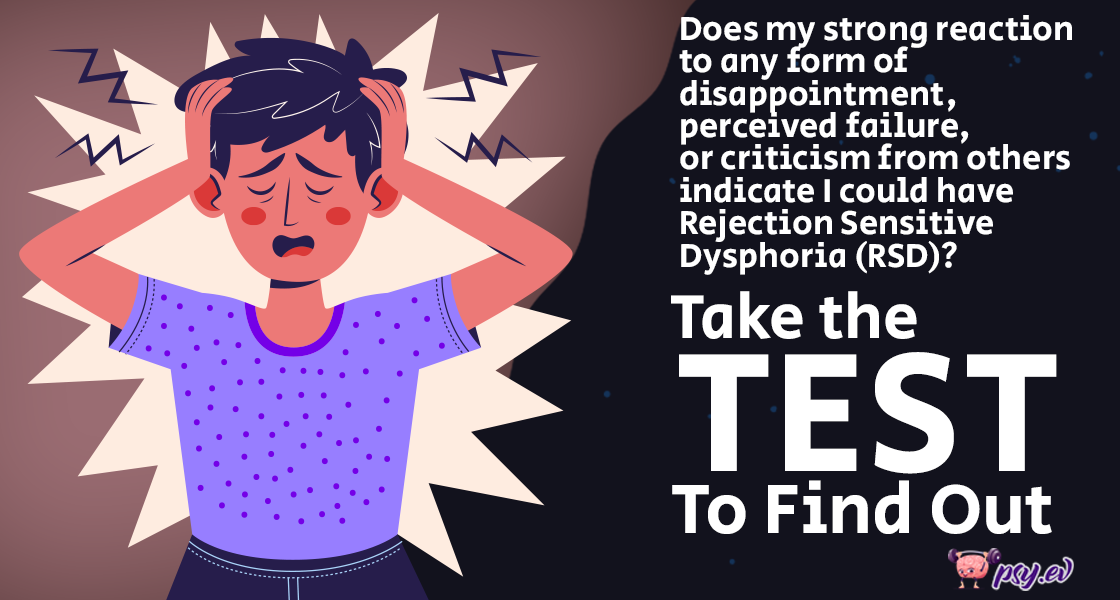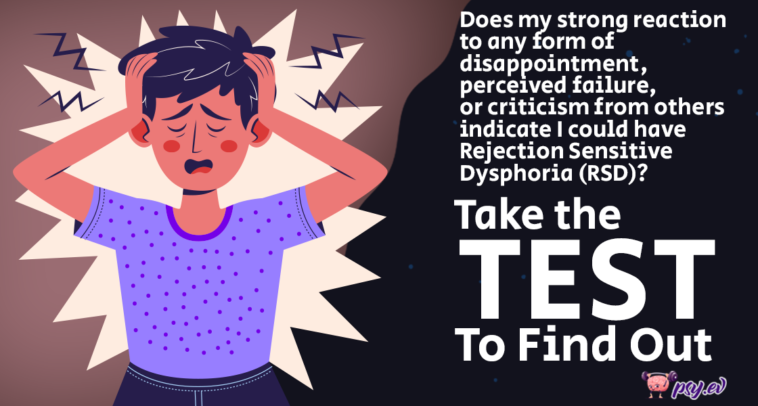RSD is frequently seen as a symptom of the emotional dysregulation present in ADHD. Furthermore, since people tend to avoid social situations where they may be judged, RSD is occasionally misdiagnosed as a social anxiety disorder. This clinically tested rejection sensitivity questionnaire will help evaluate your symptoms accurately.
After completing the rejection sensitivity test, visit a qualified RSD expert with the findings to discuss your treatment choices. Make sure to discuss your symptoms and your experiences with your healthcare professional.
Signs and Causes of Rejection Sensitive Dysphoria
People with RSD experience intense emotional reactions to other people's negative opinions or criticism, which sends their minds into a whirl that prevents them from getting on with their day.
Individuals with RSD frequently overestimate how stigmatized or despised they are. Furthermore, others may also perceive them as overly sensitive or extremely reactive to the mildest sorts of criticism.
Experts still do not completely understand the cause of this condition and the behavior it induces. Certain people may be more genetically prone to RSD than others since it includes an overreaction of the hypothalamic-pituitary-adrenal or HPA axis. However, RSD is not only caused by genetics. It can be influenced by environmental, social, and psychological triggers, such as having overly strict standards for behavior as a child, experiencing a very upsetting rejection at a young age, being made to feel excessively guilty or ashamed for their behavior, or having dysfunctional attachments with parents.
However, some experts believe the brain's structure may also have a role. The amygdala and prefrontal cortex are the regions of the brain that analyze, react to, and handle acts of rejection, failure, emotional awareness, and negative signals.
Children, teenagers, and adults with RSD may lose their temper and feel irritated or angry. These brain regions often become more adept in processing data as you age. You can organize and manage your emotions to engage with your environment and accomplish your goals.
Next Steps
Completed the rejection sensitivity test? The next step is to visit an RSD specialist. The RSD professional will choose the best RSD treatment based on the severity of your symptoms and whether they coincide with other disorders.
The treatment for rejection sensitive dysphoria can also include medication due to the physiological nature of the reaction for some patients. Some medications that can calm the physiological reaction have also shown promise for those with rejection sensitive dysphoria.
Apart from medications, different effective psychotherapies are implemented to treat rejection sensitive dysphoria. Psychotherapies aim to improve your understanding of your emotional reactions and how to handle them.
Cognitive behavioral therapy (CBT), dialectical behavior therapy (DBT), exposure therapy, and supportive therapy will help you with your RSD symptoms. CBT enables you to reframe your feelings and ideas about those situations by challenging and dissecting your beliefs about rejection. Exposure therapy gradually exposes you to potentially hurtful or humiliating events, so you may develop coping mechanisms. To help people control their thoughts and behaviors, DBT focuses on developing skills including distress tolerance, interpersonal effectiveness, emotion regulation, and mindfulness.
Contact a therapist or psychologist to evaluate your symptoms further and pave your path for handling rejection better.


